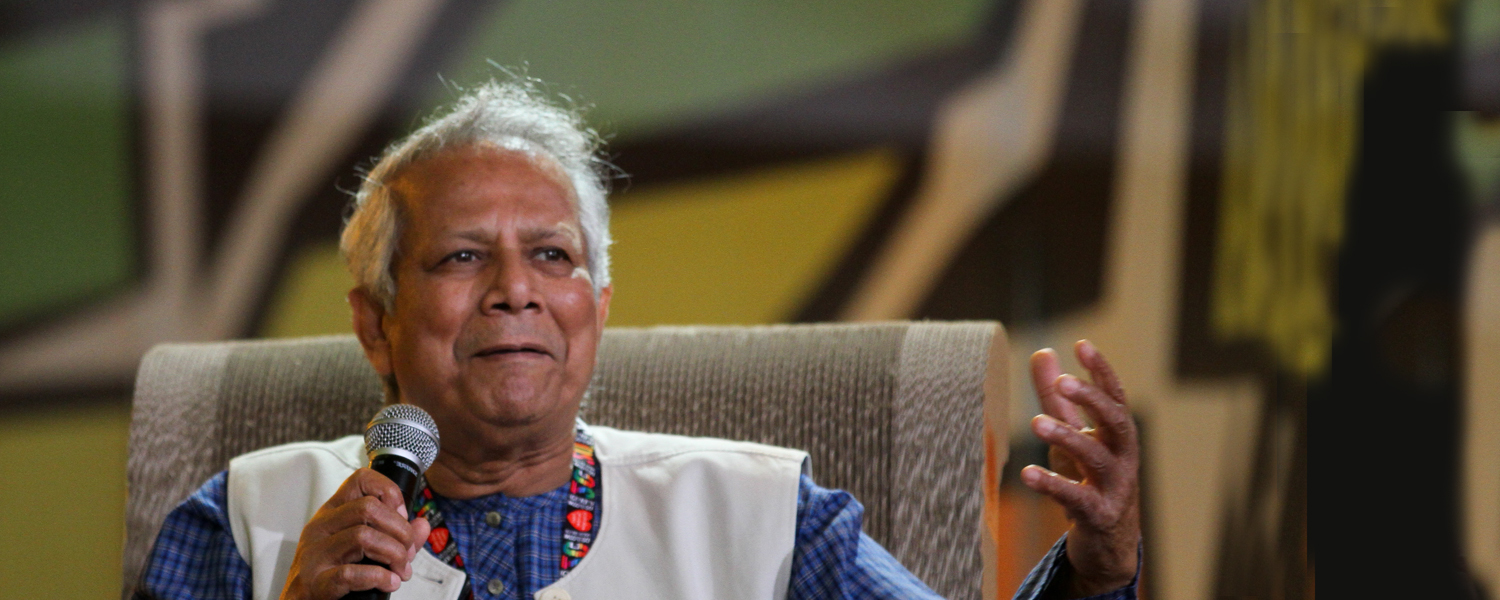
Muhammad Yunus
Civil / Human Rights, Economy / Economics, Inspirational, Motivational Speaker, Philanthropy
Travels from India
Muhammad Yunus's speaking fee falls
within range:
Over $75,000
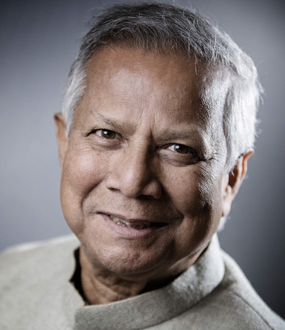
Have you seen Muhammad speak? Leave a review.
Muhammad Yunus Profile
Professor Muhammad Yunus was awarded the Nobel Peace Prize in 2006 for his revolutionary work in establishing the Grameen Movement; this movement, based on micro-finance for the rural poor, combines capitalism and social responsibility and has transformed the lives of millions across the world.
In his home country, Bangladesh, he has had an unparalleled influence on rural development and politics. His ideas on village government (Gram Sarkar) were officially adopted by his government in 1980. Prior to that he was honored with the President’s award for his concept of three share cooperative farming.
Professor Yunus took a PhD in economics from Vanderbilt University in 1969 as a Fulbright scholar, moving on to become assistant professor of Economics at Middle Tennessee State University. He then returned to his home country to work in the Economics Department of Chittagong University. He has worked on many United Nations projects, amongst them the Global Commission on Women’s Health, the Advisory Council for Sustainable Economic Development and the UN Expert Group on Women and Finance.
In his home country Professor Yunus has served on many committees and commissions with remits ranging from education to disaster prevention to banking. He has received numerous international awards in addition to the Nobel Prize, amongst them the Aga Khan Award for Architecture (1989) and the World Food Prize from the World Food Prize Foundation (1994). In Bangladesh he was given the Independence Day Award in 1987, the highest honor the nation can bestow.
Professor Yunus has recently published Building Social Business: The New Kind of Capitalism That Serves Humanity’s Most Pressing Needs, demonstrating how social business has become globally accepted as an effective and inspiring methodology. In his book and his speeches he explains the transformational effect of social business and gives guidance for those who wish either to create their own social business or incorporate its principles into an existing entity.
- View Extended/Alternate Bio
- As founder of the Grameen Movement, Professor Muhammad Yunus is a revolutionary. His ideas couple capitalism with social responsibility and have changed the face of rural economic and social development forever.
Professor Yunus is responsible for many innovative programs benefiting the rural poor. In 1974, he pioneered the idea of Gram Sarker (village government) as a form of local government based on the participation of rural people. This concept proved successful and was adopted by the Bangladeshi government in 1980. In 1978, he received the President′s award for Tebhaga Khamar (a system of cooperative three-share farming, which the Bangladeshi government adopted as the Packaged Input Program in 1977).
A Fulbright Scholar at Vanderbilt University, Professor Yunus received his Ph.D. in Economics in 1969. Later that year, he became an assistant professor of Economics at Middle Tennessee State University, before returning to Bangladesh where he joined the Economics Department at Chittagong University.
The UN secretary general appointed Professor Yunus to the International Advisory Group for the Fourth World Conference on Women in Beijing from 1993 to 1995. Professor Yunus has also served on the Global Commission of Women′s Health (1993-1995), the Advisory Council for Sustainable Economic Development (1993-present), and the UN Expert Group on Women and Finance. He also serves as the chair of the Policy Advisory Group (PAG) of Consultative Group to Assist the Poorest (CGAP).
Yunus has also served on many committees and commissions dealing with education, population, health, disaster prevention, banking, and development programs. He is currently on the boards of many international organizations including Amanah Ikhtiar Malaysia (a Grameen replication project), the International Rice Research Institute in the Philippines, and Credit and Savings for the Poor in Malayasia. Professor Yunus also sits on the board of the Calvert World Values Fund, the Foundation for International Community Assistance, the National Council for Freedom From Hunger, RESULTS and the International Council of Ashoka Foundation, all of which are located in the US.
Professor Yunus has received the following International awards: the Ramon Magsaysay Award (1984) from Manila; the Aga Khan Award for Architecture (1989) from Geneva; the Mohamed Shabdeen Award for Science (1993) from Sri Lanka; and the World Food Prize by World Food Prize Foundation (1994) from the US. Within Bangladesh, he has received the President′s Award (1978), Central Bank Award (1985), and the Independence Day Award (1987), the nation′s highest award.
Professor Muhammad Yunus serves in the boards of many national and international organizations. Besides Grameen Bank he has created a number of companies in Bangladesh to address diverse issues of poverty and development. Among the companies are : Grameen Phone (a mobile telephone company), Grameen Cybernet (Internet Service Provider), Grameen Communications (Rural Internet Service Provider), Grameen Software company, Grameen Information Technology Park, Grameen Fund (Social Venture Capital Company), Grameen Capital Management company, Grameen Textile company, Grameen Knitwear company, Grameen Renewable Energy company, Grameen Health company, Grameen Education company, Grameen Agriculture company, Grameen Fisheries and Livestock company, Grameen Business Promotion company.
In his new book Building Social Business: The New Kind of Capitalism That Serves Humanity’s Most Pressing Needs, Yunus shows how social business has gone from being a theory to an inspiring practice, adopted by leading corporations, entrepreneurs, and social activists across Asia, South America, Europe and the US. He demonstrates how social business transforms lives; offers practical guidance for those who want to create social businesses of their own; explains how public and corporate policies must adapt to make room for the social business model; and shows why social business holds the potential to redeem the failed promise of free-market enterprise.
His autobiography, Banker to the Poor, was published in 1998 & became a New York Times Best-Seller.


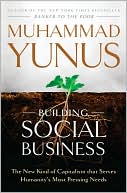
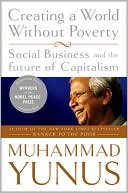
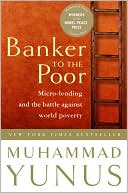
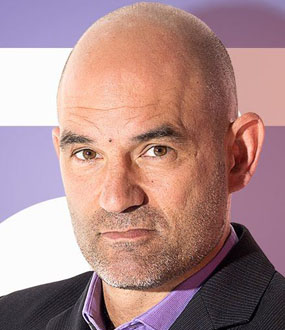
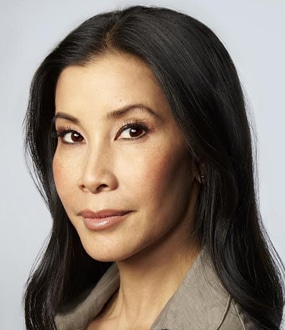
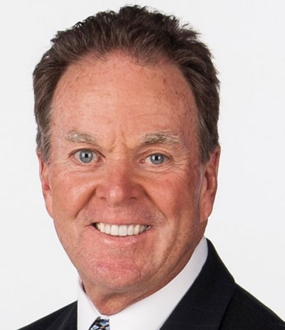
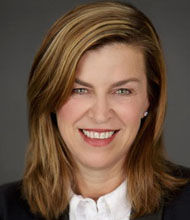

Have You Seen this Speaker? Leave a Star Rating.